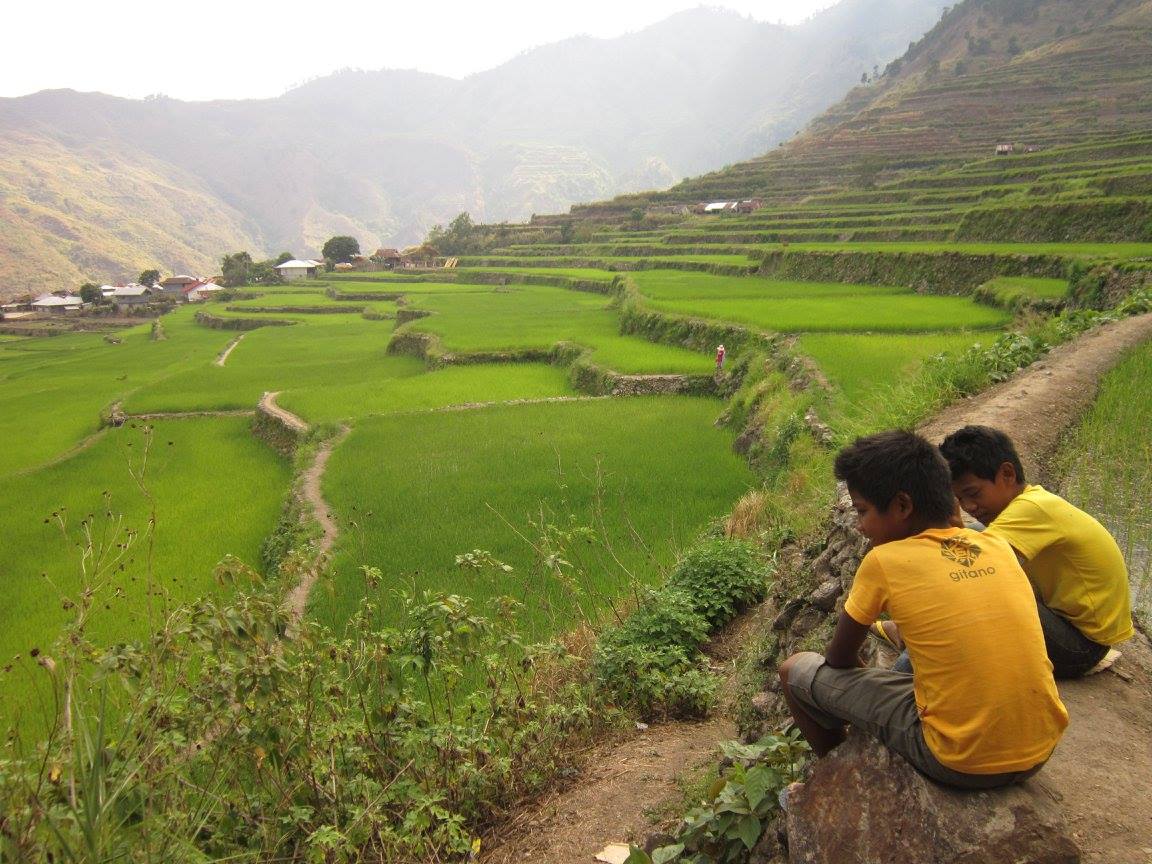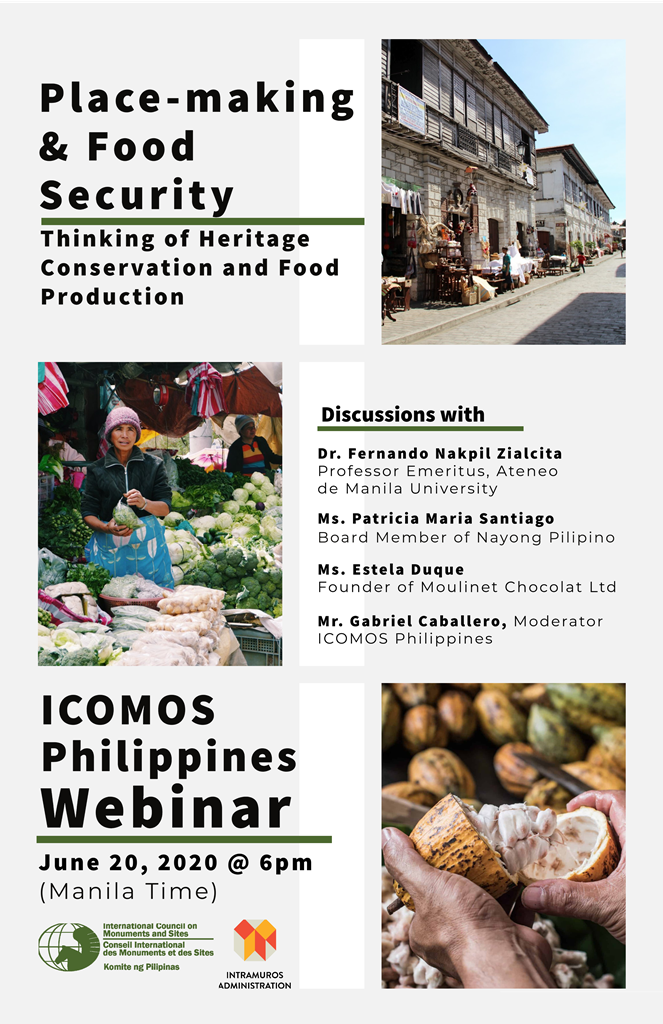INTRODUCTION
ICOMOS Philippines members came together online last June 20, 2020 for the webinar, “Place-Making and Food Security: Thinking of Heritage Conservation and Food Production”. This is part of the project, ‘Heritage Practice Amidst Covid 19’. Members and specialists provided some perspectives connecting food security and cultural heritage amidst the challenges of the global pandemic.
CONCEPT
Three key terms were re-examined namely: food security, food sovereignty, and their relationship to cultural heritage:
A. Food security defined as the supply, the availability, and the stability of price of basic foodstuff in the international and domestic market (World Food Conference, 1974). While Food Sovereignty emerged more than three decades later as the reaction to grass roots movements around the world, and uncovered more clearly the mediators, interactions, and instruments of food production, distribution, and consumption.
Food sovereignty prioritises local and national economies and markets and empowers peasant and family farmer-driven agriculture, artisanal – fishing, pastoralist-led grazing, and food production, distribution and consumption based on environmental, social and economic sustainability. Food sovereignty promotes transparent trade that guarantees just incomes to all peoples as well as the rights of consumers to control their food and nutrition.
– Nyéléni Declaration on Food Sovereignty (February 2007) at Sélingué, Mali
B. Cultural heritage acknowledges the central role of change and human culture in shaping food production. The Rice Terraces of the Philippine Cordilleras, the Agave Landscape and Ancient Industrial Facilities of Tequila, the Coffee Cultural Landscape of Colombia are just few of the sites representing agricultural practices passed on for generations, later on caters the global market, thus, highlighting the deep connections between food, people, places, and culture in various parts of the world.
Responding to queries – Pursuing a Public Discourse
A healthy public interest in the topic was well-received with questions coming from universities, professional organizations, and national institutions that exposes a need for public discourse in the Philippines on the politics of food.
An example is the Sagada in Northern Philippines which indicates the need for this platform in the public domain, to discuss our changing relationship with nature through food, cultural practices, and tourism.

Responses by the esteemed speakers from the webinar’s questions are shown in the ‘Annex A’ of this report. The questions have been grouped into two broad themes: the first, brings globalization to bear on the Philippine context of food chain; the second focuses on local issues of food, tourism, economic development and intangible heritage.
CONCLUSION
ICOMOS Philippines hopes that this webinar provides new ideas that can contribute to improving the appreciation for Filipino farmers, and artisans, and improve their commercial prospects. The lack of interest and of involvement in traditional agricultural practices especially by the youth, will lead to a loss of traditional knowledge, and risks destruction of cultural landscapes that are shaped by the dying farming traditions. This holds true for fishing villages, sugar plantations, salt-making regions, and other places where food production is central to these cultural landscapes’ cultural significance
In summary the webinar illustrates that humanity’s food resources can be secured, while conserving its most important cultural heritage, based on these three basic principles:
- Respect for the environment.
- Build an equitable relationship with the primary producers of our food.
- Recognise indigenous knowledge systems and practices for the benefit of these communities.
Download the file below to read more.
If you would like to know more about this initiative, please get in touch with Gabriel Caballero, ICOMOS Philippines Communications Officer at communications[at]icomosphilippines[dot]com and Estela Duque, Founder of Moulinet Chocolat Limited at http://www.moulinetchocolat.com/


